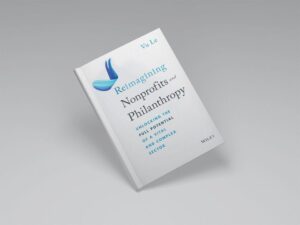
November 8, 2017; Chicago Tribune
Conflict of interest cases within the nonprofit world are rarely black and white. More often, as NPQ’s Rick Cohen wrote in 2007’s “Conflict of Interest: Mischief, Thou Art Afoot,” “conflict of interest is in the eye of the beholder,” The Dunham Fund in Aurora, Illinois, however, would appear to have crossed that line in its relationship with the professional management firm, Management Solutions of Illinois.
Enlisting a private company to help manage a nonprofit itself is not unusual. Many organizations outsource functions such as accounting and human resources to save on cost through the economies of scale achieved. This seems more common among smaller nonprofits though, not organizations as large and complex as the Dunham Fund.
The issue, however, is that MSI is run by the Dunham Fund’s executive director and family. Over the course of almost a decade, the Dunham Fund has paid close to $2 million to MSI for services rendered. Something smells funny here.
In “Now You See it, Now You Don’t: Conflict of Interest Demands More Than Just a Policy,” Mel Gill outlines four tests that can be applied to organizations to determine if there is indeed a conflict of interest. While the Dunham Fund passes the “peer standards” test, it does not readily pass the remaining three, arguably more important, tests for several reasons.
Sign up for our free newsletters
Subscribe to NPQ's newsletters to have our top stories delivered directly to your inbox.
By signing up, you agree to our privacy policy and terms of use, and to receive messages from NPQ and our partners.
First, when approached by the Dunham Fund to lead the organization, Bob Vaughn explained, “I said, fine, this is how I operate. I operate through MSI.” The fact that his hiring was contingent upon the Dunham Fund utilizing MSI’s services is cause for concern. Maryam Judar, executive director and lawyer at the Citizen Advocacy Center, sums this up: “It seems to me like if that’s the only way he operates, it begs the question, what’s he getting out of this.” It is not the relationship with MSI that necessarily smells funny, but rather Vaughn’s adamant position on using this particular company—which, oh, by the way, his family operates. Moreover, Vaughn has declined to answer whether he received any additional money from MSI outside of his salary from the fund. Thus, the Dunham Fund fails the “public disclosure” test.
The “reasonable person” test asks, “What would a reasonably prudent person or board do under the circumstances?” Even with Vaughn’s personal ties to MSI, the contract with the Dunham Fund does not scream conflict of interest. If the board can demonstrate they did their due diligence of researching other management companies, possibly providing documentation of market comparisons, and still decided that MSI was the best deal, it would be safe to say they made a reasonable decision and suspicions would be dissolved. Yet, the organization has not released minutes of board meetings or any other documentation to substantiate their decision-making.
Lastly, the “best interest” test questions whether the board acted in good faith to achieve the best interests of the organization. Here, again, we enter murky waters. According to the latest Form 990 found in GuideStar, the Dunham Fund spent close to $350,000 in 2015 on management services provided by MSI. Although the details of the MSI contract have not been revealed, common sense suggests that the Dunham Fund could have hired a business manager (or five) for less than what they spend on services from MSI annually. Since the fund distributes grants to Aurora-area nonprofits, and money spent on MSI could have funded service-area projects, it’s possible the contract may not be in the best interest of the organization and the community it serves.
NPQ has seen conflict of interest cases that run the gamut from “something smells funny” to major scandal. While nonprofit organizations that accept donations are under far more public scrutiny, private foundations such as the Dunham Fund often receive less attention. At a minimum, the Dunham Fund has failed to abide by standard guidelines in avoiding conflict of interest. Your nonprofit would do well not to follow their example.—Sheela Nimishakavi










